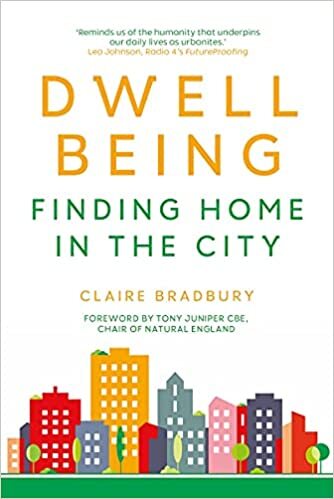Jeremy Williams's Blog, page 73
January 28, 2022
How Paris is reclaiming the Champs Élysées
The Champs Élysées may be the most famous street in the world. It’s certainly a contender, with the Arc de Triomphe and the Place de la Concorde. It’s home to the flagship stores of some of the world’s most exclusive brands, and hosts the finishing line of the Tour de France.
Some 300,000 tourists flock to the boulevard every day, and when they get there they find that it is choked with eight lanes of queueing traffic and not nearly as glamourous as they were led to believe. The locals alrea...
January 27, 2022
What are your top green books?

I’d like your help with something, if you’ve got a minute.
I’m starting a little project called the Little Green Library. It’s based on the Little Free Libary idea, which I’m a big fan of, but with a climate literacy twist.
I’m planning to place boxes of books on green issues in a few public locations – cafes, schools, churches, maybe actual libraries if they’ll work with me. It’ll work on trust, like the Little Free Libraries do, and will hopefully encourage the reading and sharing ...
January 26, 2022
Five approaches to plastic waste in Africa
It’s bin day tomorrow, and so this evening I’ll be sorting my family’s waste for the week and rolling the bins out at the front of my house. From there on it’s more or less the council’s business. This is so normal that it’s easy to forget what a luxury it is to have your waste taken away and dealt with on your behalf.
In many parts of the world waste is dealt with more informally, by burning it or dumping it. But waste has value, and networks of waste pickers retrieve materials for resale, f...
January 25, 2022
The double climate benefit of plant based diets
There are lots of reasons why people might want to eat less meat and dairy, from cultural or religious reasons, to health benefits, to animal welfare. Some people choose to eat less because of climate change, and they’re onto something. As a study in Nature Food points out, there is a potentially powerful double benefit to reducing the amount of meat and dairy that we consume.
First, there are reduced emissions from production. A widespread adoption of more plant-based diets would, over time...
January 24, 2022
Book review: The Ministry for the Future, by Kim Stanley Robinson
“The climate crisis is also a crisis of culture, and thus of the imagination” wrote Amitav Ghosh in 2016. In his book The Great Derangement, he notes that literature has failed to grapple with climate change. When it does, it is almost always stories of heroic individuals battling a crisis. “At exactly the time when it has become clear that global warming is in every sense a collective predicament, humanity finds itself in the thrall of a dominant culture in which the idea of the collective has ...
January 22, 2022
What we learned this week
For those of us who have been protesting about the right to protest in recent months, there was some good news as the House of Lords voted down a series of measures in the government’s policing bill.
A frying pan made with entirely recycled aluminium uses 95% less energy to make than one made with virgin metal, according to Swiss panhandlers Kuhn Rikon.
This week the government released its first attempt to calculate climate related deaths and hospitalisations in Britain, in what will bec...
January 20, 2022
How billionaires profited from the pandemic
The Covid-19 crisis has led to the fastest rise in billionaire wealth on record, according to Oxfam. While 99% of humanity is worse off because of the pandemic, the richest 1% are better off, and the ten richest men in the world doubled their wealth.
As economies went into crisis mode, Oxfam explains, governments quickly authorised stimulus packages. Altogether, these were worth $16 trillion across the world, most of that going into financial markets. Since billionaire wealth rests on shares...
January 19, 2022
What can we learn from the world’s first carbon neutral cheddar?
Last week I wrote about the carbon footprint of cheese, which is second only to red meat as a high emission food. So it’s fortuitous timing that while I’ve been pondering the question, Wyke Farms have chosen this week to launch the world’s first carbon neutral cheddar. Since it’s been done well, and certified by the Carbon Trust, it’s a really good opportunity to understand more about the carbon content of a dairy favourite.
A little background first: Wyke Farms are a family business, curren...
January 18, 2022
First steps towards a UK Green New Deal
The idea of a Green New Deal originated in the UK in the aftermath of the financial crisis. It didn’t get anywhere at the time (despite the coalition government half borrowing the term for its ‘green deal’, which it subsequently botched anyway). It’s back on the agenda now after high profile campaigns in the US, and then more successfully in the EU, South Korea and elsewhere.
What the Green New Deal attempts is to create a big over-arching vision for sustainability and equality together. The...
January 17, 2022
Book review: Dwellbeing, by Claire Bradbury

A lot of visions of a green lifestyle are rural – off-grid homes, eco-villages, and ‘escaping’ to the countryside. While these are have their place, they’re not an option for everyone. Over half the world lives in cities already, and that percentage is only going to rise in the decades to come. So we need to think creatively about good urban lives, and about “living deeply and joyfully in cities.”
That’s the subject of Claire Bradbury’s book, Dwellbeing: Finding home in the City.
The ...



